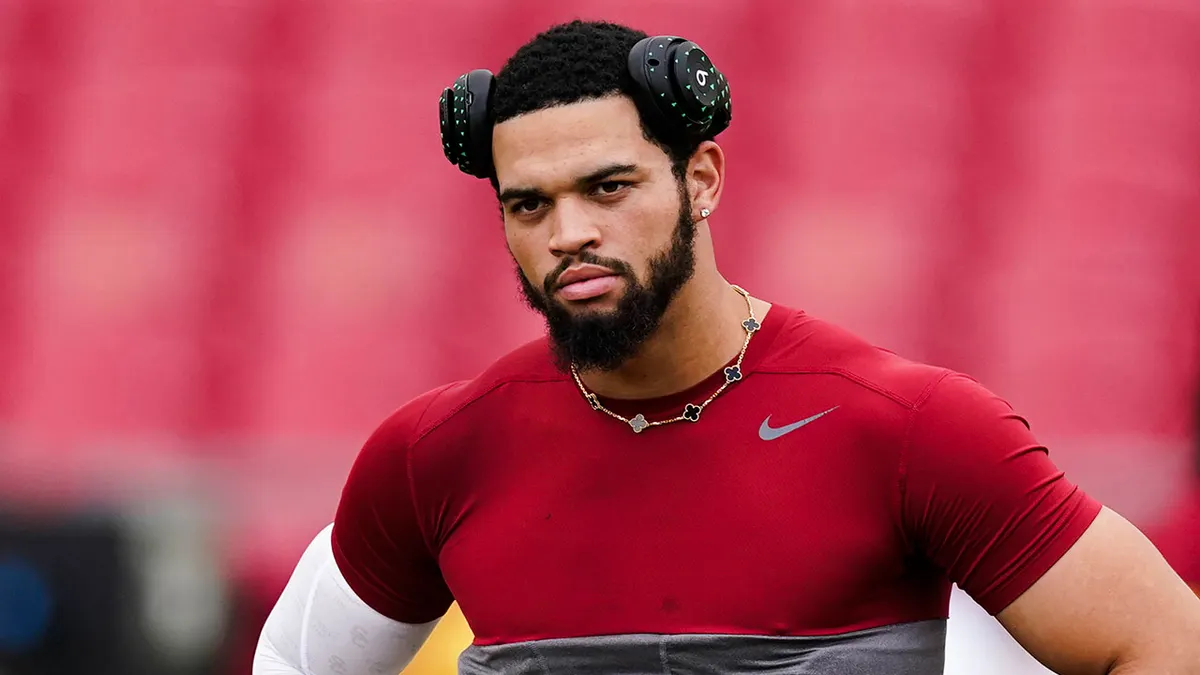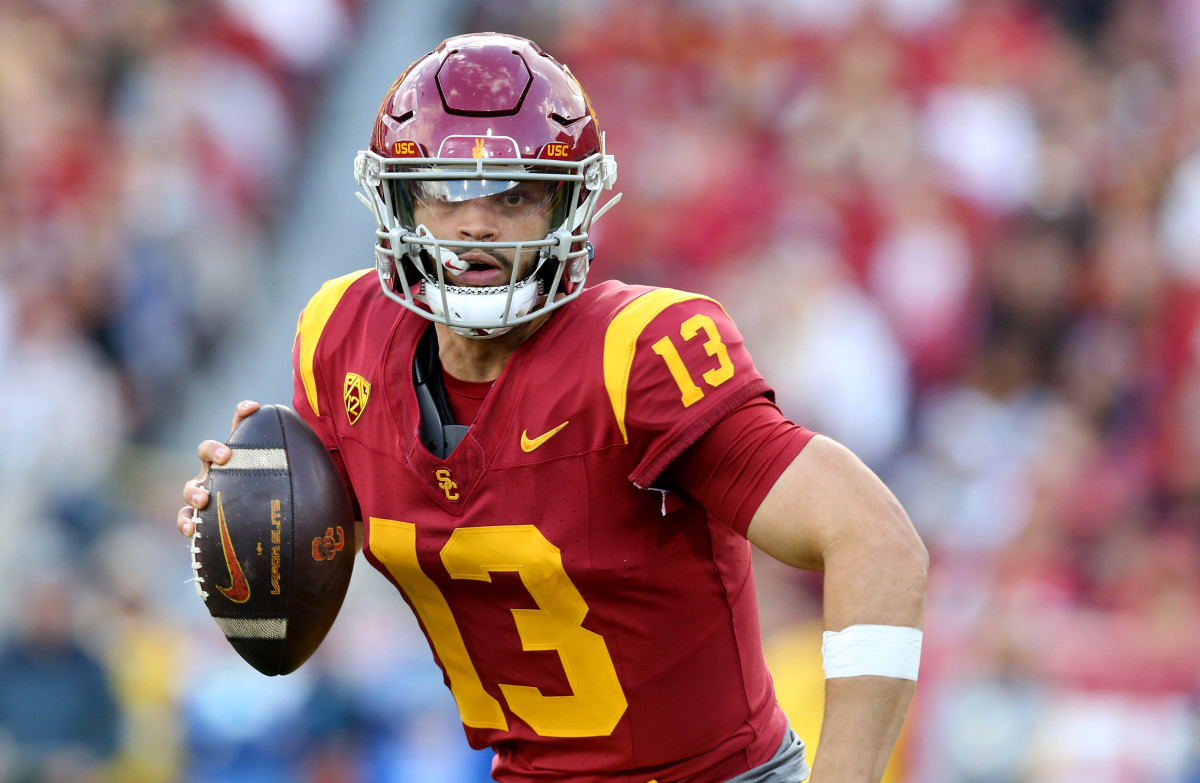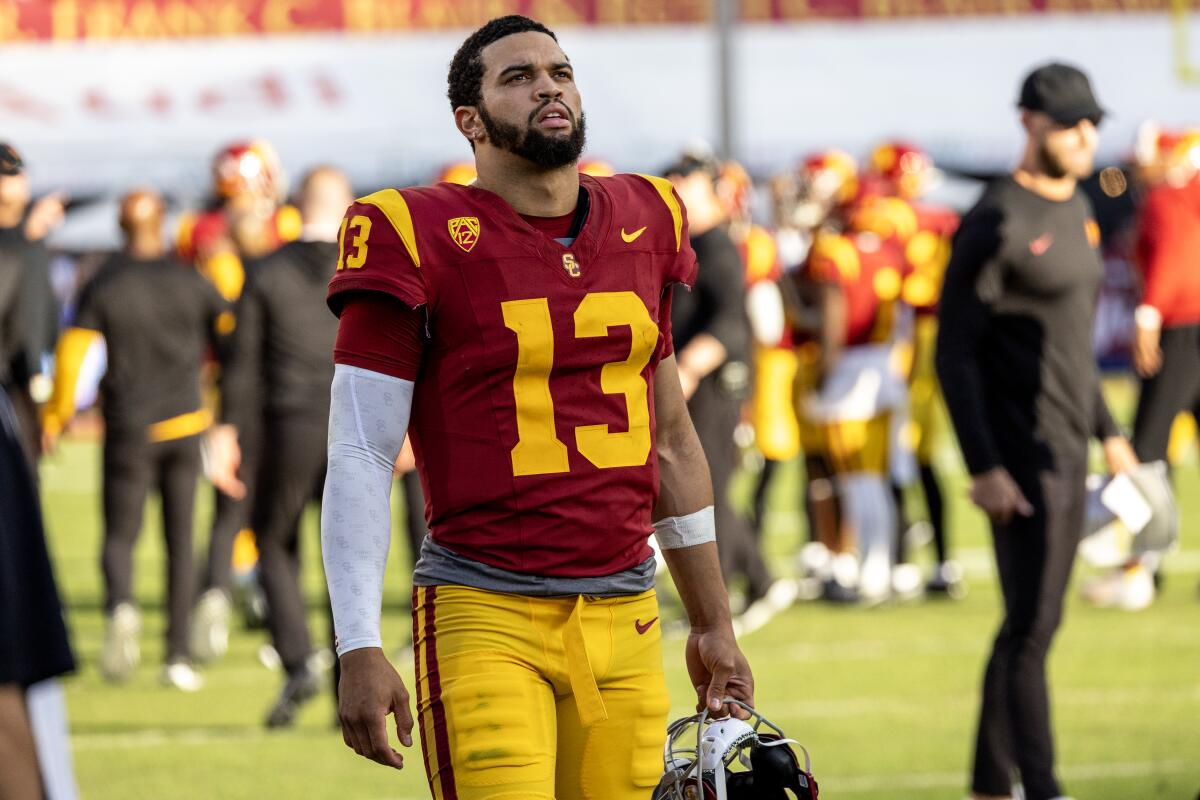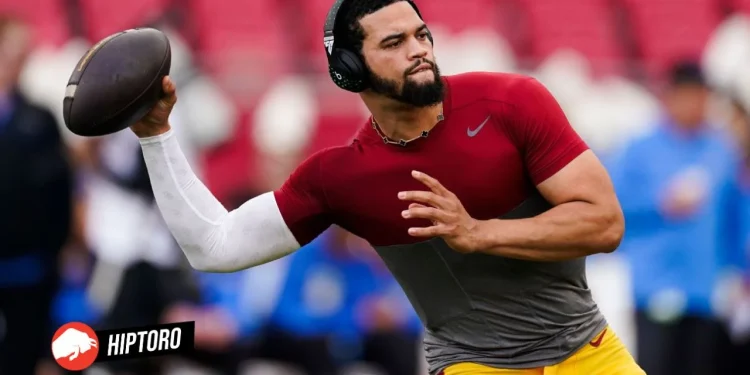In the bustling world of the NFL, where talent and fit are scrutinized through the most microscopic lenses, the debate over Caleb Williams’s potential future with the Chicago Bears adds a compelling chapter to the pre-draft narratives. As the city of Chicago finds itself on the cusp of making a decision that could shape its franchise for years to come, Deion Sanders, a name synonymous with football excellence, has voiced a perspective that diverges from the prevailing winds of optimism surrounding Caleb Williams’s fit with the Bears.

The Windy City’s Climate Challenge
At the heart of Sanders’s apprehension is the climatic disparity between Williams’s past environments and the notoriously harsh winters of Chicago. Having transitioned from the University of Oklahoma to the sun-drenched fields of the University of Southern California, Williams, despite his undeniable talent, is seen by Sanders as potentially ill-suited for the rigors of Chicago’s colder climate.
Sanders, currently shaping the future stars of football at the University of Colorado, articulated his concerns on Mad Dog Radio, emphasizing the importance of a player’s adaptability to their environment. “This kid can flat-out play. I think he’s going to be one on the board this year for sure,” Sanders acknowledged, before adding a crucial caveat, “A kid that’s coming from California for the last couple of years, right? And went to Oklahoma. That’s not cold. Chicago’s cold, man.”

A Glimpse into Caleb Williams’s Pro Day Spotlight
The spotlight on Williams isn’t solely a product of speculative debate. The recent USC Pro Day served as a testament to the quarterback’s prowess, attracting significant attention from the Chicago Bears’ scouting contingent. The event underscored the interest and potential investment the Bears are considering in Williams, despite the voiced concerns over his climatic compatibility.
The Case for a Midwest Quarterback
Sanders’s viewpoint isn’t merely about geographical preference but is rooted in a belief that a player’s upbringing and collegiate career in colder climates serve as a crucible for their development, preparing them for the challenges of NFL winters. He nostalgically reflected on the Bears’ former quarterback, Justin Fields of Ohio State, as a more fitting mold for Chicago’s harsh winters. “You gotta think about that kind of stuff when you’re taking a young man,” Sanders remarked, highlighting the pragmatic considerations that come with drafting a player.
Bears Caleb Williams
Commies Jayden Daniels
Pats Marvin Harrison Jr
(Trade up with Arizona)
Giants Drake Maye pic.twitter.com/VtkgZetxre— Alex (@SotoCooperstown) March 23, 2024
Looking Beyond the Weather
While Sanders’s reservations bring an important dimension to the discourse surrounding Caleb Williams’s draft prospects, it’s also crucial to recognize the adaptability and resilience that define the greatest athletes. Williams, who grew up in the Washington, D.C. area and has faced varied weather conditions, may well possess the innate capacity to transcend the challenges posed by Chicago’s climate.
Furthermore, the current draft landscape, as analyzed by experts like NFL Network’s Daniel Jeremiah, suggests a scarcity of top-tier quarterback talents from cold-weather colleges, presenting a conundrum for teams like the Bears in search of their next leader.

Final Thoughts
As the NFL Draft approaches, the debate over Caleb Williams’s fit with the Chicago Bears continues to stir interest and analysis. Deion Sanders’s insights add a layer of depth to this conversation, reminding fans and franchises alike of the multifaceted nature of player evaluations. Whether Williams dons the Bears’ navy and orange remains to be seen, but the discourse surrounding his draft journey encapsulates the intrigue and speculative fervor that make the NFL Draft a perennial spectacle.

Source: NFL Spin Zone









